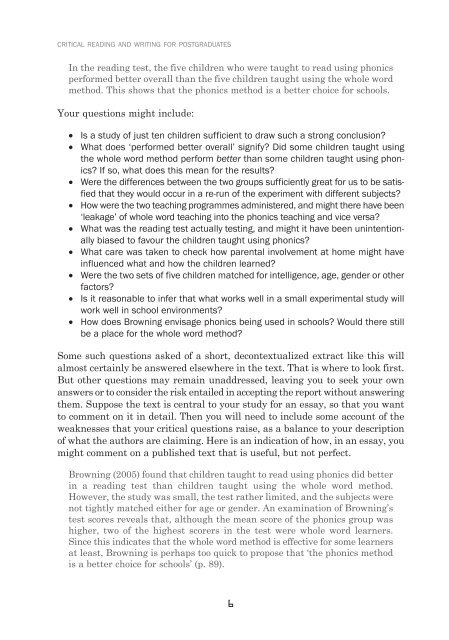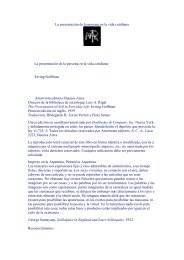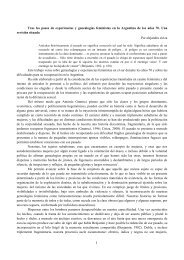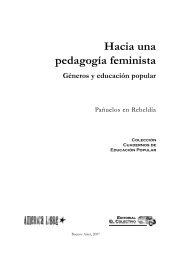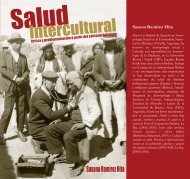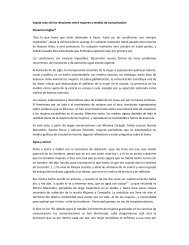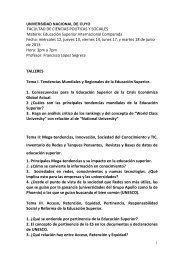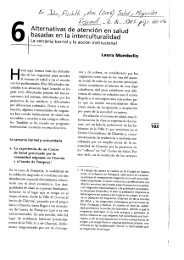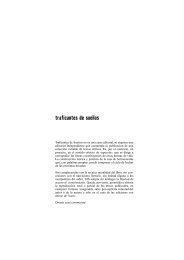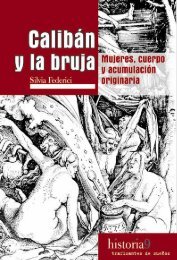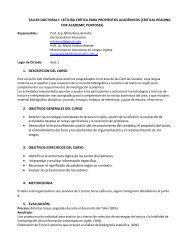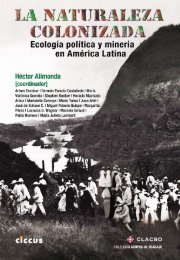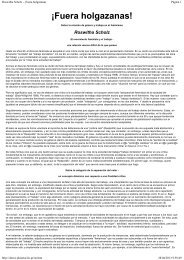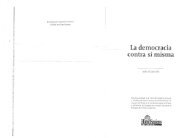Critical Reading and Writing for Postgraduates - Doctorado en ...
Critical Reading and Writing for Postgraduates - Doctorado en ...
Critical Reading and Writing for Postgraduates - Doctorado en ...
You also want an ePaper? Increase the reach of your titles
YUMPU automatically turns print PDFs into web optimized ePapers that Google loves.
critical reading <strong>and</strong> writing <strong>for</strong> postgraduates<br />
In the reading test, the five childr<strong>en</strong> who were taught to read using phonics<br />
per<strong>for</strong>med better overall than the five childr<strong>en</strong> taught using the whole word<br />
method. This shows that the phonics method is a better choice <strong>for</strong> schools.<br />
Your questions might include:<br />
••<br />
Is a study of just t<strong>en</strong> childr<strong>en</strong> suffici<strong>en</strong>t to draw such a strong conclusion?<br />
••<br />
What does ‘per<strong>for</strong>med better overall’ signify? Did some childr<strong>en</strong> taught using<br />
the whole word method per<strong>for</strong>m better than some childr<strong>en</strong> taught using phonics?<br />
If so, what does this mean <strong>for</strong> the results?<br />
••<br />
Were the differ<strong>en</strong>ces betwe<strong>en</strong> the two groups suffici<strong>en</strong>tly great <strong>for</strong> us to be satisfied<br />
that they would occur in a re-run of the experim<strong>en</strong>t with differ<strong>en</strong>t subjects?<br />
••<br />
How were the two teaching programmes administered, <strong>and</strong> might there have be<strong>en</strong><br />
‘leakage’ of whole word teaching into the phonics teaching <strong>and</strong> vice versa?<br />
••<br />
What was the reading test actually testing, <strong>and</strong> might it have be<strong>en</strong> unint<strong>en</strong>tionally<br />
biased to favour the childr<strong>en</strong> taught using phonics?<br />
••<br />
What care was tak<strong>en</strong> to check how par<strong>en</strong>tal involvem<strong>en</strong>t at home might have<br />
influ<strong>en</strong>ced what <strong>and</strong> how the childr<strong>en</strong> learned?<br />
••<br />
Were the two sets of five childr<strong>en</strong> matched <strong>for</strong> intellig<strong>en</strong>ce, age, g<strong>en</strong>der or other<br />
factors?<br />
••<br />
Is it reasonable to infer that what works well in a small experim<strong>en</strong>tal study will<br />
work well in school <strong>en</strong>vironm<strong>en</strong>ts?<br />
••<br />
How does Browning <strong>en</strong>visage phonics being used in schools? Would there still<br />
be a place <strong>for</strong> the whole word method?<br />
Some such questions asked of a short, decontextualized extract like this will<br />
almost certainly be answered elsewhere in the text. That is where to look first.<br />
But other questions may remain unaddressed, leaving you to seek your own<br />
answers or to consider the risk <strong>en</strong>tailed in accepting the report without answering<br />
them. Suppose the text is c<strong>en</strong>tral to your study <strong>for</strong> an essay, so that you want<br />
to comm<strong>en</strong>t on it in detail. Th<strong>en</strong> you will need to include some account of the<br />
weaknesses that your critical questions raise, as a balance to your description<br />
of what the authors are claiming. Here is an indication of how, in an essay, you<br />
might comm<strong>en</strong>t on a published text that is useful, but not perfect.<br />
Browning (2005) found that childr<strong>en</strong> taught to read using phonics did better<br />
in a reading test than childr<strong>en</strong> taught using the whole word method.<br />
However, the study was small, the test rather limited, <strong>and</strong> the subjects were<br />
not tightly matched either <strong>for</strong> age or g<strong>en</strong>der. An examination of Browning’s<br />
test scores reveals that, although the mean score of the phonics group was<br />
higher, two of the highest scorers in the test were whole word learners.<br />
Since this indicates that the whole word method is effective <strong>for</strong> some learners<br />
at least, Browning is perhaps too quick to propose that ‘the phonics method<br />
is a better choice <strong>for</strong> schools’ (p. 89).<br />
6


